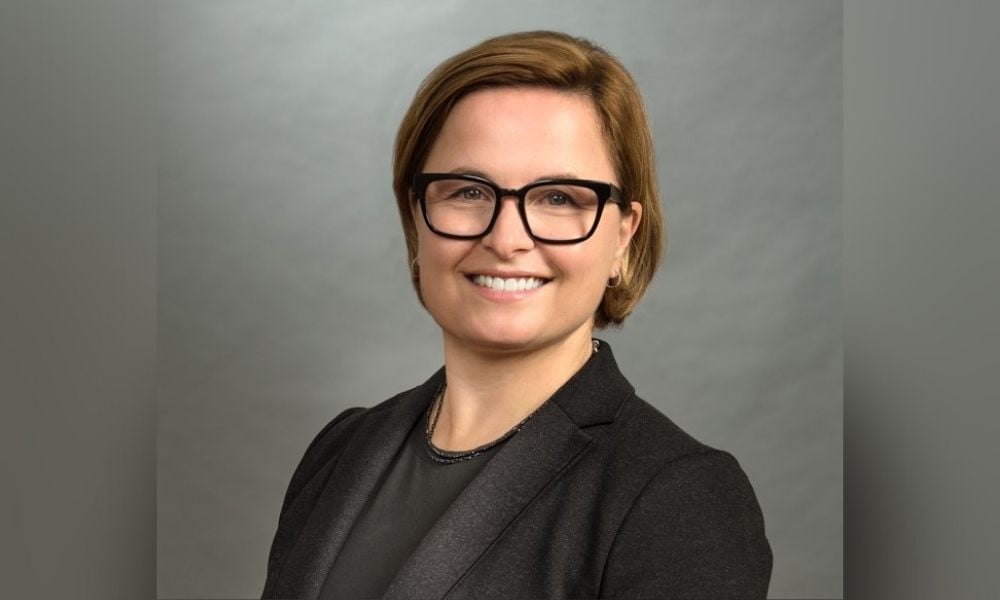
Priorities for the Office include creating a website and building a robust student program

When Kristin Taylor joined the University of Toronto as its inaugural university counsel and chief legal officer in September 2021, she took on the daunting challenge of establishing a central legal function for the vast organization. While in-house counsel have operated at the university for decades, they have previously operated in silos, without the central function present at most universities, so Taylor has been building an ‘Office of University Counsel’ which will tie all the in-house lawyers together in a growing function.
“The idea was that I would come in and create a home for the legal counsel who were already working at the university, assess the legal needs of the university, and determine what needed to be done to make a more fulsome and holistic approach,” says Taylor. “There was a clear desire on the part of the university to do this, which makes it easier, and I have inherited an exceptional group of lawyers,” she adds.
Twelve lawyers are currently reporting to Taylor from across the university, and the team is set to expand with two new hires anticipated shortly, and potentially another two by fall.
After joining UofT on September 13, Taylor set a target to meet as many people at the university as possible before she met with the executive team on December 1 to present her plan for the structure of the new office.
“I wanted to have the necessary consultations to frame my proposal, so I moved at lightning speed and met with over 100 people in that time,” says Taylor. During those meetings – both with university lawyers and internal clients – Taylor learnt what was working and what areas needed improvement, and she developed a sense of any concerns about the new structure which allowed her to ensure that the voices of all stakeholders were considered in her proposal.
“I wanted to be assured that we were aligning with the client side and the legal team so that whatever structure we put forward would address every side,” says Taylor. “Now that the team has been structured and reporting relationships have shifted, I have given my team the mandate to work with their clients to make sure their needs are being met, but also to support the internal team to make sure we’re not inadvertently shooting ourselves in the foot,” she adds.
Taylor also consulted with counsel from other universities in Canada to gauge their opinions on best practices which could be useful in developing the legal function at UofT.
Prior to joining the university, Taylor spent 12 years leading the legal department at the Centre for Addiction and Mental Health so she is familiar with understanding complex organizations with unique hierarchies and relationships among clients.
“Hospital lawyers are there because they believe in the mission and the clinical care aspect of the hospital, just as university lawyers believe in the mission and academic mandate of the university, so it was very familiar to me,” she says. After being in healthcare for a long time, Taylor was keen to energize with a new challenge, and the opportunity to stretch her leadership skills at an organization with the prestige and stature of UofT really spoke to her.
Taylor is excited about the potential within her team at UofT as they develop new ways of working collectively to give advice and service their clients.
“The potential of integrative alignment is really an improvement in how we give advice because we are working collectively and putting our heads together to move forward,” she says.
Taylor and her team are tackling many legal challenges this year – not least pandemic-related factors including vaccination mandates for faculty and students, as well as accommodations for exemptions. They are also supporting the university in its goal to keep students in in-person classes as far as possible.
Among her goals moving forward, Taylor is planning to contribute to the academic mission of the university by affiliating her department with the University of Toronto Faculty of Law to provide robust student programs including internships, summer jobs and articling positions.
Another of Taylor’s key goals is creating the first website for the Office of University Counsel, which will allow employees to access lawyers in an efficient and controlled way.
“I would consider it a successful year if the Office of University Counsel was an understood, known and reliable entity across the university for people who are seeking legal services,” she says. “Having a website will create a visual to go along with the concept, so it’s an exciting way to show off the team and explain what we’re all about.”